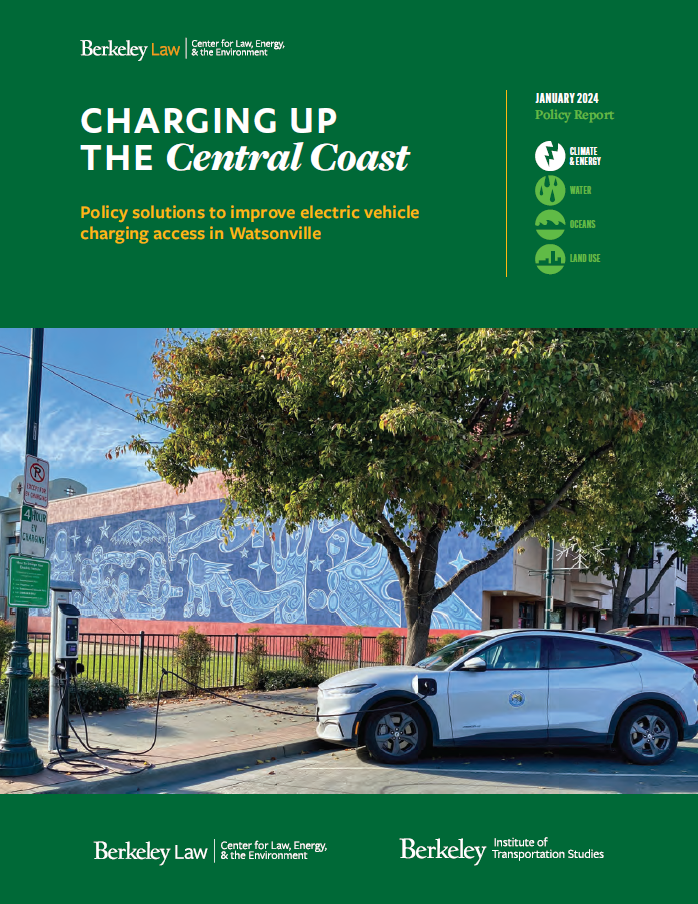January 2024
 In pursuit of the state’s goal to end the sale of new internal combustion engine passenger vehicles by 2035, California leaders face a critical challenge in ensuring equitable access to zero-emission vehicles (ZEVs), particularly for lower- and moderate-income residents. A significant barrier to this transition is the limited access to electric vehicle (EV) charging stations, especially in communities with lower home ownership rates and inadequate grid infrastructure. To address these challenges and ensure more and equitably distributed chargers across California, state and local policymakers can learn lessons from representative communities and the practical challenges they face to installing EV chargers.
In pursuit of the state’s goal to end the sale of new internal combustion engine passenger vehicles by 2035, California leaders face a critical challenge in ensuring equitable access to zero-emission vehicles (ZEVs), particularly for lower- and moderate-income residents. A significant barrier to this transition is the limited access to electric vehicle (EV) charging stations, especially in communities with lower home ownership rates and inadequate grid infrastructure. To address these challenges and ensure more and equitably distributed chargers across California, state and local policymakers can learn lessons from representative communities and the practical challenges they face to installing EV chargers.
To further this objective, UC Berkeley School of Law’s Center for Law, Energy & the Environment (CLEE) partnered with Watsonville, a diverse city of 50,000 in Santa Cruz County’s agricultural heartland. Due to its location, demographics, and ambitious policy goals, Watsonville represents a potential model and case study for other cities around the state grappling with how to boost zero-emission vehicle charging infrastructure.
Our new report, based on stakeholder interviews and a convening held in Watsonville, offers insights and policy recommendations for both state and local entities to accelerate investment in EV charging infrastructure in Watsonville, which could inform other cities facing similar challenges and seeking to meet state targets and residents’ needs. Some key recommendations include:
- Comprehensive Mapping Assessment: Watsonville’s City Planning Department and Public Works & Utilities Department could initiate a comprehensive mapping assessment to determine optimal and equitable charger locations based on local needs and transportation patterns.
- Zoning and Permitting Policies: Watsonville’s City Planning Department could revise zoning and permitting policies to require EV charger installation or EV-ready electrical infrastructure at certain priority locations.
- Electricity Rate Optimization: The CPUC and utility companies could implement electricity rates that reduce the cost of charging during off-peak hours and improve transparency for consumers about these rates.
- Community Awareness Campaigns: The state transportation agencies could expand support for community based organizations in Watsonville that conduct targeted, multi-lingual public awareness campaigns about the potential cost savings and benefits from switching to EVs.
The insights and recommendations outlined in our report aim to guide state and local policymakers in addressing the unique challenges faced by lower-income communities. By prioritizing equitable access to charging infrastructure, California can pave the way for a more inclusive and sustainable transportation future.
Access the full report here: Charging up the Central Coast: Policy Solutions to Improve Electric Vehicle Charging Access in Watsonville.
Contact Shruti Sarode or Ethan Elkind for more information.